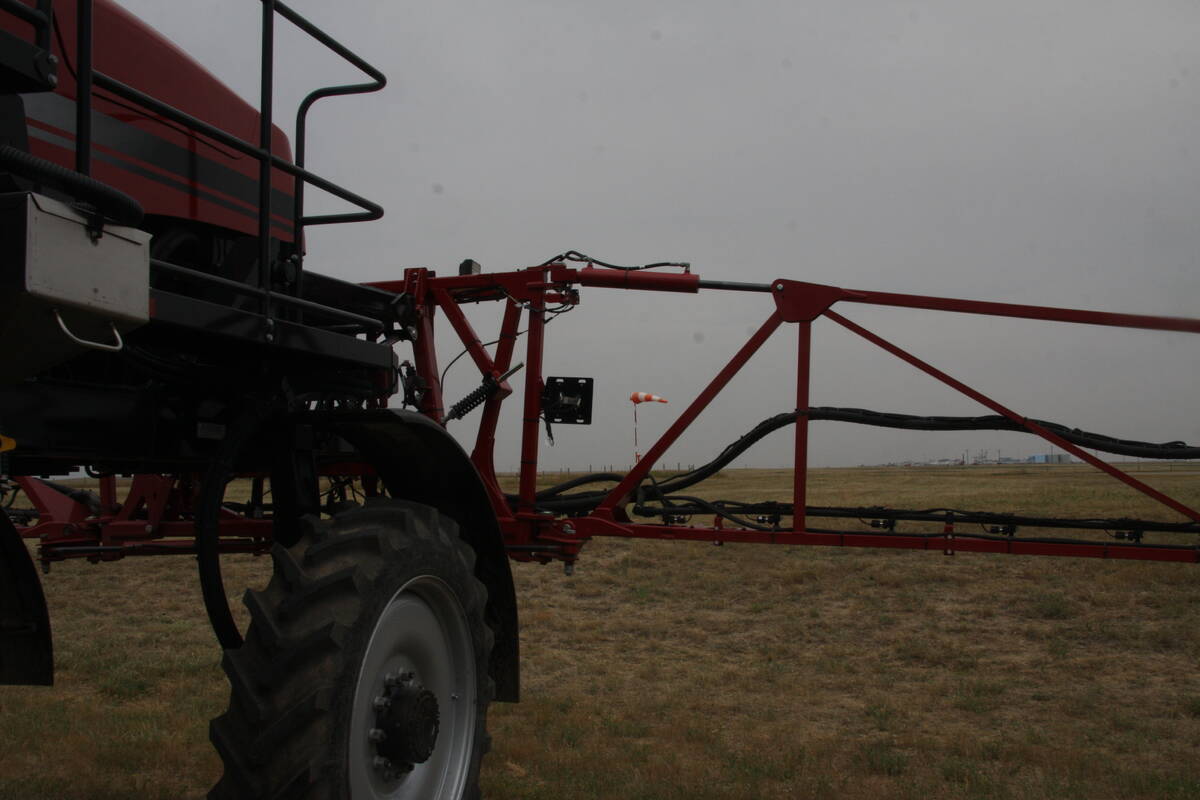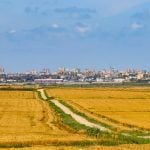RED DEER – Myths surrounding the care and feeding of horses are rarely
based on reality.
The truth is, many nutrition problems are related to the care humans
give horses.
Lori Warren, Alberta Agriculture’s provincial horse specialist who
focuses on equine nutrition, poked holes in some old wives’ tales at a
recent conference in Red Deer.
Most feed problems occur when horses are not given time to adjust to a
new
diet. Their delicate digestive systems are disrupted and their bodies
Read Also

More work wanted on removing red tape
REGINA — Canadian farmers risk falling further behind competitors if two main federal agencies don’t become more efficient and responsive…
react.
Alfalfa
“Alfalfa is the most mis-understood feed,” Warren said.
Horses were designed to eat forage and most cope well as
long as new feed is introduced gradually.
Myth: Never feed a horse straight alfalfa.
Horses can successfully consume alfalfa, a good source of fibre and
protein. They can graze it in pastures or eat it as hay.
Lactating and brood mares need feed such as alfalfa to meet their high
protein requirements. Performance horses or fat ponies do not need as
much.
“Fat horses and easy keepers should probably stay away from rich feeds
in general,” she said.
Horses with poor appetites should try alfalfa. It is highly palatable
and may stimulate them to eat more.
Myth: Do not feed straight alfalfa to young, growing horses.
Young horses need energy, and alfalfa provides more nutrients than
timothy, brome or spring pasture. It does not cause orthopedic problems.
Myth: Alfalfa causes kidney damage.
Horses seem to urinate more after eating straight alfalfa. However,
this is a natural process as animals get rid of excess protein. Urine
may seem concentrated, but that is more likely caused by poor water
intake.
“Alfalfa is high in protein and that means there is probably more
nitrogen to get rid of, particularly if the horse’s requirements are
much lower than the amount of alfalfa fed,” she said.
“Alfalfa is not high enough in protein to tax them so hard they will
have a problem.”
The only exception is horses that already have kidney problems.
Myth: Alfalfa causes colic and founder.
Most cases are related to feed and if offered incorrectly, feet or gut
trouble may arise in horses already predisposed to colic or founder.
A recent university study showed colic may occur if there is a change
in the hay or grain, or if horses have no pasture time with exercise.
They may be susceptible to
colic if they get more than 2.7 kilograms of grain daily.
If hay is put up with too much moisture, mould may develop
and cause colic.
Alfalfa does not cause bloat in horses. It is a greater problem in
ruminants.
To prevent overloading the horse, Warren advised measuring feed by
weight rather than feeding by volume. For example, alfalfa cubes should
be fed at the same weight as straight alfalfa. If the horse received
6.3 kg of alfalfa
hay, it can receive the same
weight in cubes.
Protein and energy
Protein and energy require-ments often confuse horse owners. Commercial
feed is often sold according to protein content, so many assume it is
the most important nutrient.
“A lot of people have a hard time differentiating between protein in
the diet and energy in the diet,” Warren said.
Myth: High protein makes horses too high-spirited.
No data proves protein affects a horse’s behaviour or attitude.
Behaviour is related to energy derived from calories in their feed.
Many horses become more active with excess calories. Horses living in
confinement also tend to have more behavioural problems.
It is important to check the density of available feed grain because
there are differences in caloric levels.
Corn, for example, is a dense, high-energy feed containing more
calories per pound than other feed grains. Two kg of corn contain the
same amount of energy as 2.25 kg of oats.
Many people measure feed in a large coffee can, so a good rule is that
one can of corn is equal in energy to 13/4 cans of oats. One and a
quarter cans of barley compares to one can of corn.
Myth: Performance horses need lots of protein intheir diets.
This probably stems back to human nutrition when it was theorized 50
years ago that athletes needed to consume large amounts of protein.
Actually, people and horses need more energy because they are working
harder.
Idle horses need eight percent protein in the diet compared to brood
mares that require 10-14 percent. Growing horses need 13-15 percent
protein in their rations.
Myth: Orthopedic problems are related to high-protein diets.
This was the assumption until the 1970s, but it has since been refuted.
Leg and bone problems may stem from genetics, management or nutrition.
The horse may have too much dietary energy with a phosphorus imbalance
or low calcium, copper or zinc. It could be an insulin resistance to
starch in the grain, which results in feed being metabolized
improperly. Some young horses may be more sensitive to grain and react
adversely to the feed.
Developmental orthopedic disease requires feed analysis and a
veterinary diagnosis.
Besides a balanced diet, young horses need exercise and time on pasture
to grow properly.
Types of feed
Myth: Barley and corn are heating feeds.
Horses often receive more barley or corn in winter because people
believe the grains keep them warm. However, more heat
is actually generated by the digestion of forage.
Fibre requires more digestive activity than grain. Heat is produced
when intestinal microbes break down hay. Barley or corn does not
increase body heat, but the grains help horses meet nutrient
requirements.
Some people offer straw for extra fibre in winter months. Straw is
acceptable, but the horse must receive plenty of water to avoid
impaction in the bowel. Horses cannot eat enough snow to meet their
water requirements.
Myth: Rolled oats are better than whole oats.
There is little difference in the digestibility of whole or processed
oats. Older horses with bad teeth or young horses that do not chew well
may have difficulty with whole oats.
Rolling barley provides more nutrition when the hull is cracked. Corn
does not have to be processed if the horse has strong teeth.
Myth: Beet pulp should be soaked before feeding to horses.
Beet pulp is a shredded or pelleted byproduct of sugar beets. It is
nutritious with a high fibre content and good digestible energy. It can
be a good grain replacement.
Some say it should be soaked before feeding because they worry the
horse might choke on the pellets. Horses that eat too fast can choke
and problems may occur if the pellets are lodged in the throat.
Others claim unsoaked pulp could rupture the stomach when it expands.
The stomach can hold nine to 18 litres.
Salt blocks
Myth: Blue salt is for cattle and red salt is for horses.
Colour actually depends on the manufacturer. Read the label to make
sure the block provides the necessary nutrients. Red blocks contain
iodized salt while brown blocks include trace minerals. Blue salt
contains cobalt, which cattle need to synthesize vitamin B12.
Drinking
Myth: Horses must be cooled down before they drink.
With the exception of hard galloping, horses can drink after work.
Endurance horses are allowed as much water as they want to prevent
dehydration.

















